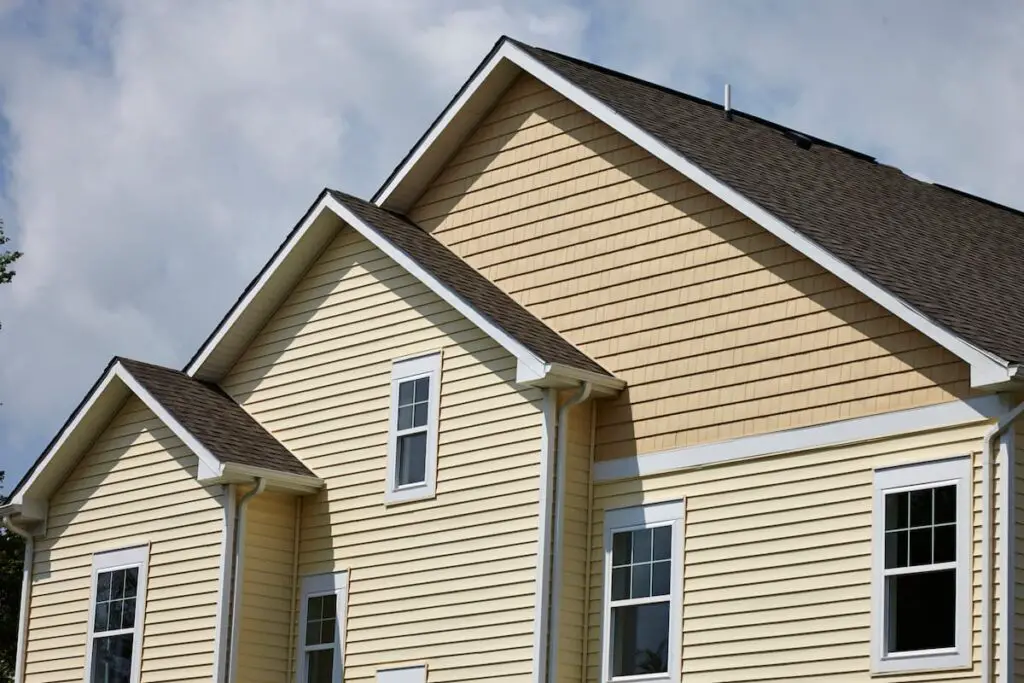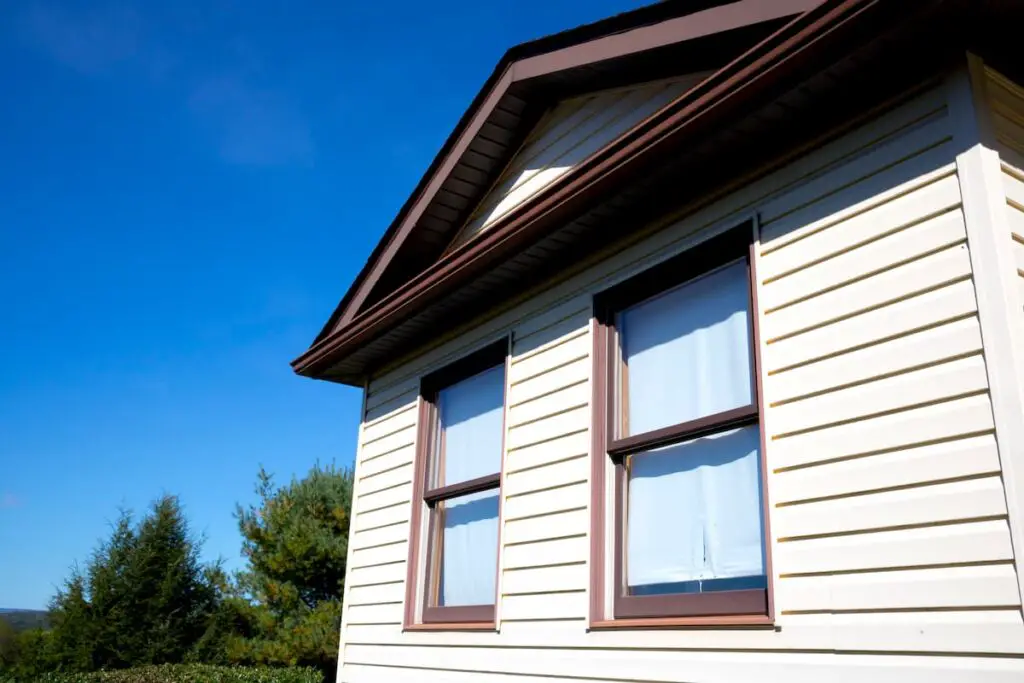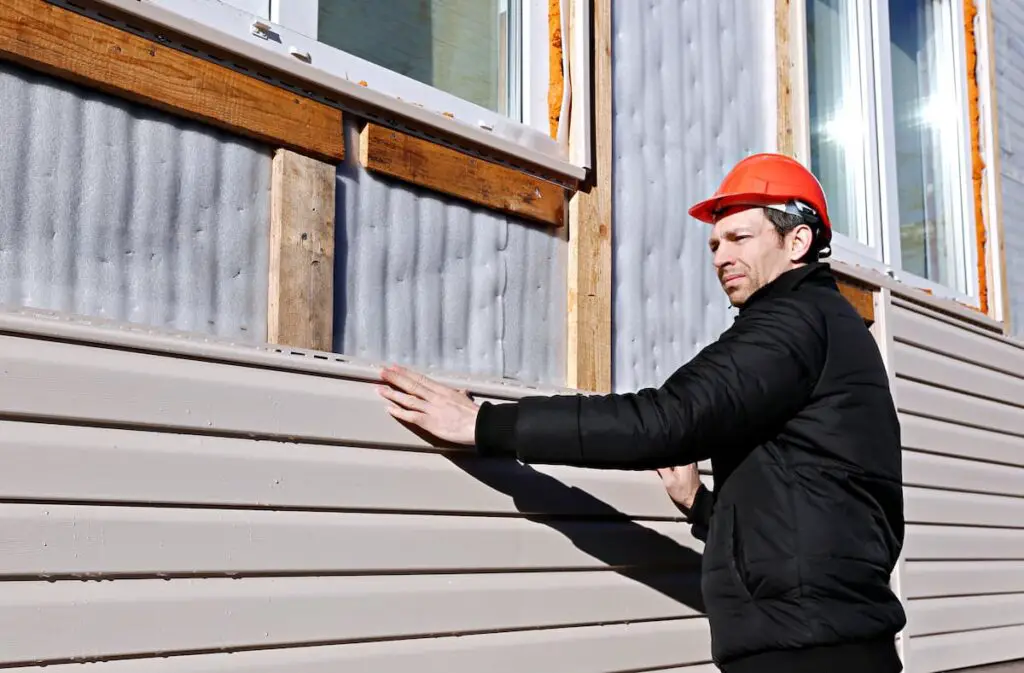As an Amazon Associate, we earn from qualifying purchases. We may also earn commissions if you purchase products from other retailers after clicking on a link from our site.
Vinyl siding is arguably the most sought-after cladding material due to its durability, affordability, and ease of installation. However, even though it enhances your home’s appearance, you might have heard some squeaking, popping, or cracking sound from your siding. So, why does vinyl siding make noise in the wind?
Vinyl siding makes noise in the wind due to improper installation or temperature variations. If your siding could be too loose or too tight, you most likely hear some unusual noises. Therefore, you need to fix the problem promptly.
The rest of the article will discuss a few topics related to the question in great detail. You don’t want to miss out on anything. So, let’s dig in!

Is It Normal for Vinyl Siding to Make Noise in the Wind?
It is not normal for siding to make noise in the wind if properly installed. Any squeaking or creaking sounds from your vinyl siding are indicators that there’s a problem. And, if ignored, this leads to adverse structural problems.
You might not hear any noise from your vinyl siding on normal occasions. The building material is long-lasting and usually resistant to weather elements. However, during extreme weather conditions such as storms, strong winds, and hail, your siding may rattle.
Sometimes, the noise from your vinyl siding could be negligible and a non-issue. But, if the popping, rattling, or squeaking sounds from your siding are distracting you (or your neighbors), it means that there’s an underlying problem. Therefore, you don’t want to ignore it unless you don’t mind incurring hefty repair or replacement costs.
Why Is Vinyl Siding Noisy When It Is Windy?
As mentioned earlier, it’s not normal for a properly installed vinyl siding to make noise. Excessive noise from your siding is not only annoying but disturbing. Moreover, it hints at the need to inspect the cladding and identify the cause of this issue.
Vinyl siding makes noise when it is windy due to expansion or contractions when the temperature fluctuates. Additionally, a noisy siding could indicate that your contractor didn’t do a good installation job. So, the siding could either be very tight or loose-fitting.

Now, let’s have a look at these causes in detail:
Poor Installation
Vinyl siding is one of the simplest building materials to install. However, that doesn’t mean that anyone can install it correctly. Hence, if installed improperly, the siding will develop some issues that could cause structural damage in the long run.
So, poor installation could be in the following areas:
- Loose siding – Although vinyl siding requires some room to expand, it shouldn’t be too much. If the siding is loose-fitting, it will wobble in the wind and flap against the insulation. Consequently, the siding can form cracks, allowing moisture to seep through. Moreover, strong winds can blow off the loose siding.
- Tight siding – Vinyl expands when temperatures rise. So, a contractor needs to consider leaving space for expansion. But, if this doesn’t happen and the siding is too tight, it will buckle and produce some sounds.
- Improper nailing – Proper vinyl siding installation involves hanging it on nails at the center of the installation slots. However, if you nail it too high in the hidden plank or fail to secure the siding properly on the studs, it will make noise in the wind. Moreover, the siding will be noisy if you don’t use enough nails per plank or nailed them too tightly (or loosely).
Temperature Fluctuations
High-quality vinyl siding will expand and contract optimally when temperatures change. If you live in a region where temperatures drop drastically at night and rise significantly during the day, you might hear some noise from your siding. However, these sounds might be louder if the siding is poorly installed.
Since expansion and contraction are normal processes in vinyl siding, experts recommend leaving sufficient room for this. So, a contractor should leave about ¼” on either side of a vinyl siding plank. Therefore, the plank can either expand or contract without wobbling or buckling when temperatures fluctuate.
Extreme Weather Conditions
Vinyl siding is a long-lasting building material. Therefore, it will withstand most weather elements, keeping your home interior secure. Nonetheless, some extreme weather conditions could make your siding bow to pressure.
For instance, if there’s a strong storm that throws rocks, tree branches, or other debris on your home, the siding could be prone to damage. Moreover, a severe hailstorm can also pelter destructive hail on your siding. The siding will develop cracks, chips, or dents in such cases.
A damaged siding will also be vulnerable to temperature fluctuations in the future. Additionally, it is more likely to produce loud sounds when it is windy.
How Do You Quiet Noisy Vinyl Siding?
You can quiet noisy vinyl siding by fixing the cause of the problem – for example, removing and rehanging excessively tight sidings or reinforcing loose sidings. It’s, therefore, crucial to establish why your vinyl siding is making noise first. In extreme cases, the remedy is to replace the siding.

The effects of noisy siding may not seem severe. However, you shouldn’t ignore any sounds from your siding as it could lead to more problems. Therefore, it is recommended to consult a professional contractor to check the siding if you hear any noises.
The expert will first inspect the siding to identify the cause of the problem. Then, they’ll advise you on the best action to solve the issue. This could mean repairing the siding or replacing it.
Now, here are possible solutions to quieting noisy vinyl siding:
- Removing excessively tight sidings and rehanging them properly – by leaving a ¼” space on each side
- Reinforcing loose-fitting siding planks by re-nailing them – loose planks will be easy to lift, and they also bounce.
- Adding more nails if they were not enough on each plank
- Replacing warped or damaged siding planks
Final Thoughts
Vinyl siding is the cladding of choice for most homeowners in the United States. Apart from its aesthetic appeal, it is durable, affordable, easy to install, and hardy. However, some factors such as poor installation and temperature variations could force your siding to make noise in the wind.
Although you can fix this issue, it is always best to prevent it. Therefore, inspect your siding regularly to check for any unusual changes.
